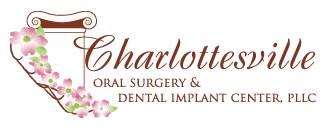05 Sep Oral Surgeon Explains What Happens to Teeth and Gums as We Age
 Just as your risk of some serious medical conditions like cancer, heart disease and diabetes increases as you get older, you also have more of a chance of developing an oral disease as you age.
Just as your risk of some serious medical conditions like cancer, heart disease and diabetes increases as you get older, you also have more of a chance of developing an oral disease as you age.
In fact, tooth loss is a common occurrence in older adults, although advances in dental treatments have reduced the frequency of tooth loss to a certain degree. Older patients may lose their teeth when a lifetime of poor oral hygiene habits finally catches up to them. A patient’s chances of developing periodontal disease also increase with age.
While keeping the biological tooth as long as possible is certainly the preference, modern treatments for tooth loss can help to replace a complete tooth structure, including the root. Dental implants provide a more secure and stable tooth replacement than has been available in years past.
After an oral surgeon places a dental implant in the jaw, the surrounding bone will form a bond with the implant’s surface in a process known as osseointegration. This phenomenon allows the dental implant to serve as an artificial tooth root.
Your oral surgeon can use dental implants to replace biological teeth in a wide variety of circumstances. Dental implants can support a crown to replace a single missing tooth or a bridge or denture when multiple teeth have been lost.
Unfortunately, bone loss is also often seen in older patients, and in some cases this can present a challenge to dental implant placement if there is not enough bone at the implant site to support the osseointegration process. The oral surgeon may be able to use alternative techniques to work around this issue or, if necessary, the patient can have a bone graft prior to implant placement to provide sufficient bone.
As you get older, your risk of tooth loss increases. Fortunately, replacement teeth that mimic a natural tooth’s structure are available. If you have recently experienced tooth loss, discuss the possibility of dental implants with our oral surgeon, Dr. Carlos Ibañez. Contact our Charlottesville office at 434-295-0911 to schedule your informative consultation today.
